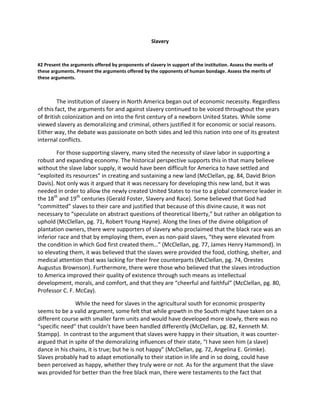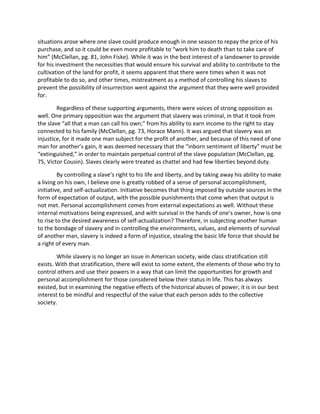Proponents of slavery argued it was necessary for economic development and that slaves were better off and cared for. Opponents argued slavery was criminal and unjust, depriving slaves of basic human rights and liberties like freedom, family connections, and self-determination. While slavery supported some economies, alternatives were possible and slavery inherently robbed individuals of personal achievement, initiative, and dignity.

